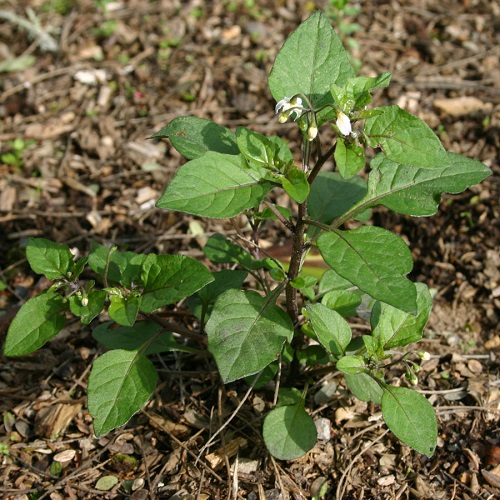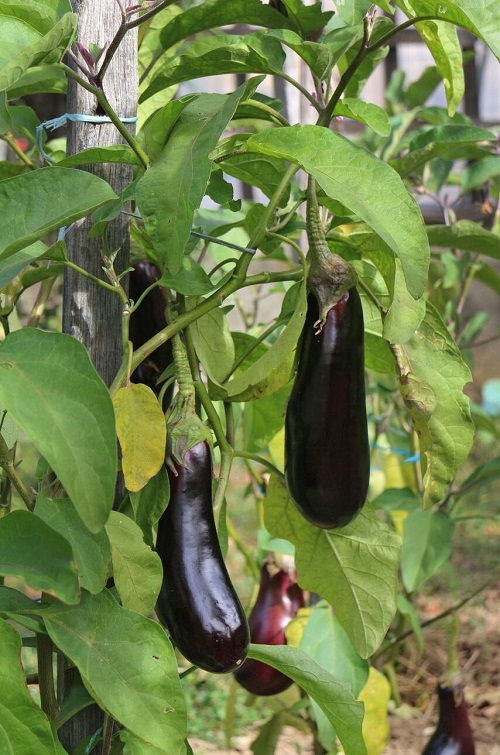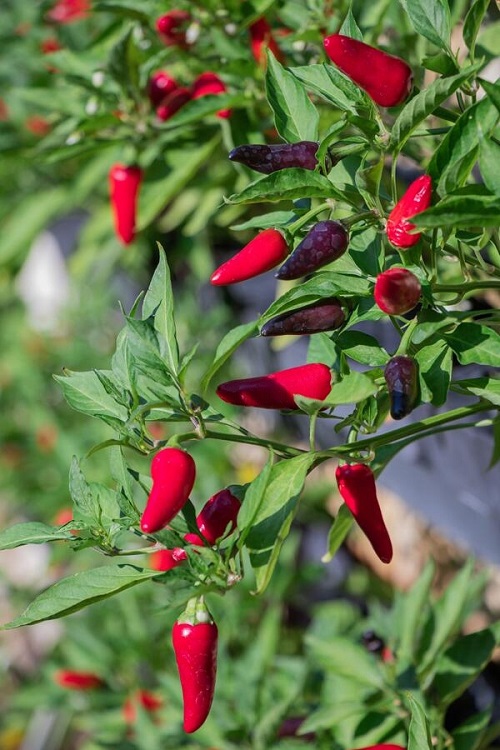Do you know that there are Black Nightshade Plants that can be a part of your collection? Continue to read for surprising options.
Yes, there are Black Nightshade Plants that are not tough to grow. So, if you have always wanted to include specimens in your collection that stand out, then read ahead!
Have a look at the Best Nightshade Vegetables and Fruits to Grow in Pots and Gardens
Black Nightshade Plants
1. American Black Nightshade
Botanical Name: Solanum americanum
American black nightshade is a short-living perennial or annual. It is a small shrub or herbaceous plant that grows up to 4-6 feet tall and produces white star-shaped blooms with yellow cone-shaped centers in summer and fall.
2. European Black Nightshade
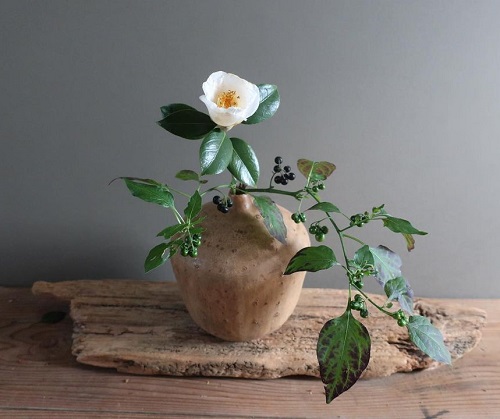
Botanical Name: Solanum nigrum
Native to parts of Europe, Macaronesia, Asia, and Northeast parts of Africa. The European black nightshade is planted for its flowers and ornamental fruits. The plant features green leaves and small star-shaped white flowers in summer.
3. Eastern Black Nightshade
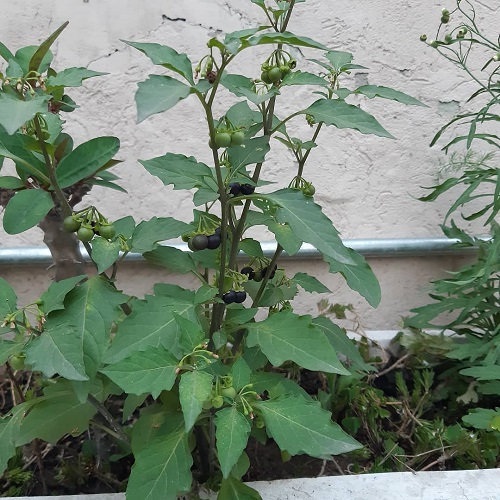
Botanical Name: Solanum ptychanthum
Eastern black nightshade is a branching summer annual and offers small seedlings, 3-5 foot-tall stems, and white to purple-tinged star-shaped petals with bright yellow anthers. Fruits are black, shiny berries. All parts of this plant are toxic to animals.
Find Is Tomato a Nightshade Vegetable?
4. Eggplant
Botanical Name: Solanum melongena
Eggplant is a short-living or annual perennial; it offers shiny purple-black edible fruit. The multi-branched plant grows up to 2-4 feet tall. It grows best in full sun; read more growing details here.
5. Tabasco Pepper
Botanical Name: C. frutescens
Tabasco pepper is a member of the Nightshade or Solanaceae family, and this multi-branched annual or perennial thrives as a shrub. Though not exactly black, some peppers take a deep blue hue.
6. Black Tomatoes
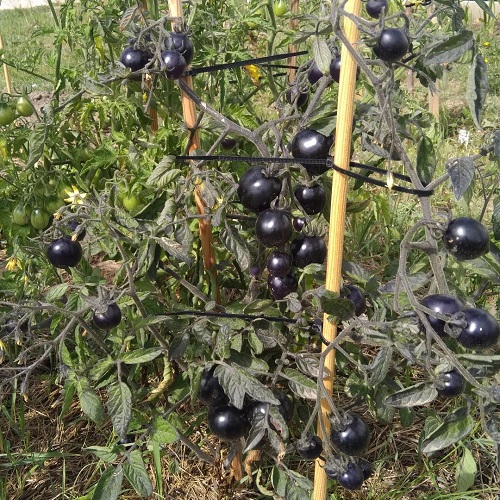
Botanical Name: Lycopersicon esculentum ‘Indigo Rose’
‘Indigo Rose’ produces fruit in the size and shape of plums with deep purple to almost black skin. The flesh is olive green, which gives intense flavor to the tastebuds. It enjoys full sun and rich soil.
7. Belladonna
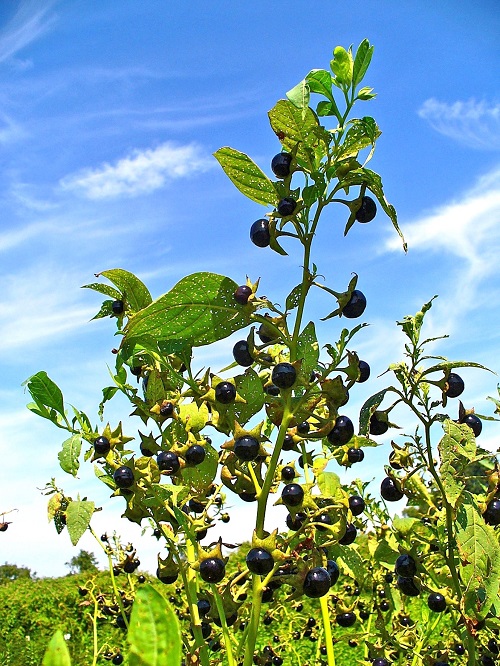
Botanical Name: Atropa belladonna
This poisonous plant is also known as deadly nightshade; the roots, fruit, and leaves contain belladonna alkaloids: hyocyamine, scopolamine, and atropine, accountable for the anticholinergic toxicity of the plant.
Atropa belladonna features dark green leaves and bell-shaped flowers. The purple-black berry attracts children and can be fatal to them sometimes. Avoid including this plant in your garden.

